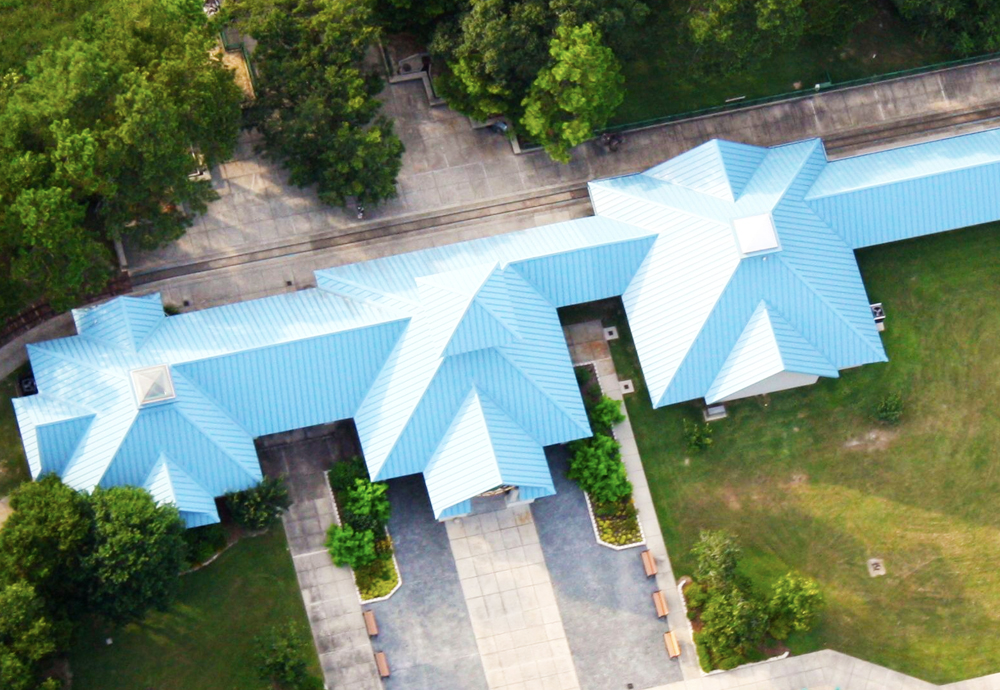
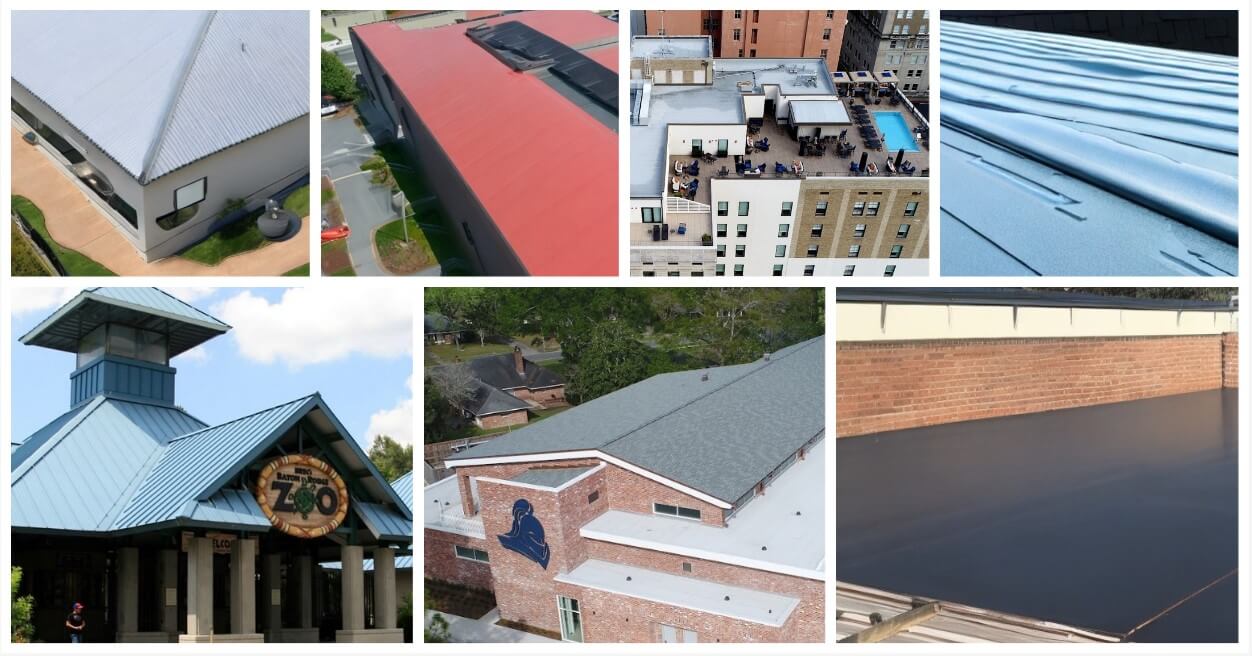
Tupac de la Cruz, Roofing Solutions
04 May 2023
When it comes to commercial roofing, there are a variety of types of commercial roofs to choose from. The commercial roof systems you choose for your business can have a significant impact on the overall look, feel, and function of your building.
With so many alternatives available, it can be difficult to decide which type of roofing is best for your business. That's why we've put together this guide to explain the different types of commercial roofing available and help you make an informed decision.
From traditional asphalt shingles to modern metal roofs, let’s explore the pros and cons of each commercial roof option so you can choose the right one for your building facility.
Commercial metal roofing systems have become increasingly popular in recent years due to their many benefits. They come in a variety of shapes and kinds: R-Panel, Mechanical Seam, Symmetrical, Corrugated, Standing Seam, and more.
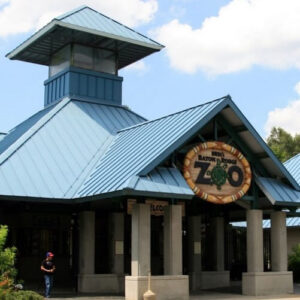
One of the main advantages of commercial metal roofing systems is their durability. Metal roofs can last up to 50 years or more, making them a great long-term investment for businesses. White metal roofs are also energy efficient, reflecting sunlight and reducing cooling costs in the summer. They are also fire-resistant and can withstand strong winds and heavy rains.
At the same time, the cost of installation of metal roofing can be higher than traditional roofing options. Additionally, some metal roofs can be noisy during rainstorms, which can be a distraction for occupants. Without proper maintenance, they can also be prone to denting and scratching, which can affect their appearance over time.
Overall, metal roofing is a great option for businesses looking for a long-lasting, energy-efficient roofing solution for the mid and long term.
Shingle roofing systems are common for residential roofs, but they are also an option for commercial buildings. Shingles come in various materials such as asphalt, wood, and metal, and offer different pros and some cons.
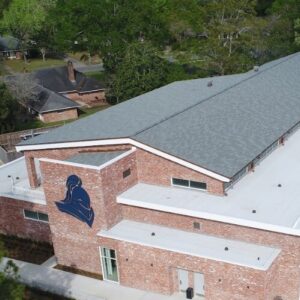
One of the main advantages of shingle roofing systems is their affordability. They are typically less expensive than other types of commercial roofing, making them a popular choice for commercial buildings with tight budgets. Additionally, shingle roofing systems are quick to install and maintain, which can save time and money on repairs and replacements.
Shingle roofing systems also have some challenges. They are not as durable as other roofing materials and may require more frequent replacements. Additionally, shingle roofs may not be suitable for buildings located in areas with extreme weather conditions, such as high winds, storms, or heavy rainfall.
Overall, shingle roofing systems can be a cost-effective and practical option for commercial buildings once you consider factors such as climate and building size before making a decisi
Thermoset EPDM Membrane is one of the popular roof types commercial due to its many benefits. One of the main advantages is its affordability, making it a cost-effective option for businesses on a tight budget. EPDM roofs are also durable, with a lifespan of up to 30 years or more. They are easy to install and maintain, reducing both installation and upkeep costs. The membrane is also resistant to UV rays and weathering, making it an ideal choice for businesses located in areas with extreme weather conditions, such as those of the Gulf Coast.
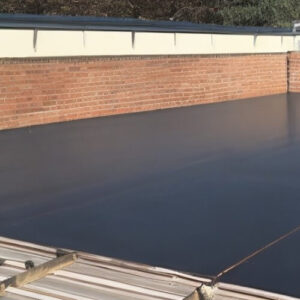
As with any other, there are also some drawbacks to EPDM roofing systems. The membrane can be easily punctured or damaged by sharp objects, which can lead to leaks. It is also prone to shrinkage over time, which can lead to cracks and other problems. Additionally, EPDM roofs are not as energy-efficient as other roofing options, which can result in higher heating and cooling costs for businesses.
Overall, EPDM roofing is a cost-effective and durable option for businesses, but it's essential to consider the potential drawbacks and determine with professionals if it's the right choice for your business. With proper maintenance, however, it can result in an attractive alternative.
Thermoplastic PVC roofing systems have become increasingly used in commercial facilities given their many qualities. One of the main benefits of PVC roofing is its durability. PVC roofs are resistant to chemicals, punctures, and fire, making them a great long-term investment for businesses. They are also energy efficient, helping to reduce cooling and heating costs, and, with good maintenance, can last up to 30 years or more. PVC roofs are also easy to install and maintain, reducing costs upfront and during their lifetime.
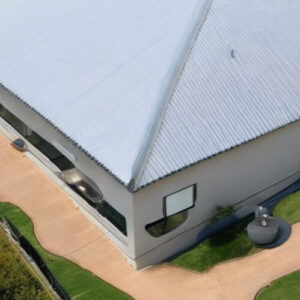
There are also potential downsides to PVC roofing systems. One of them is the initial cost of installation, which can be higher than other roofing options. In addition, PVC roofs can be prone to shrinking over time, which can cause the seams to pull apart and lead to leaks. PVC roofs can also be difficult to repair, requiring specialized materials and techniques.
That said, PVC roofing systems are a valuable option for organizations looking for a durable and energy-efficient roofing solution. Consider the pros and cons and consult with a professional roofing contractor to determine if PVC roofing is the best option for your building.
TPO (Thermoplastic Olefin) roofing membranes have gained popularity due to their many benefits. One of the most important advantages is their energy efficiency, as they reflect sunlight and reduce cooling costs in the summer. They are also durable and resistant to punctures, tears, and chemicals. TPO roofs are easy to install and maintain, reducing overall costs. They are also more environmentally friendly because they can be recycled at the end of their lifespan.
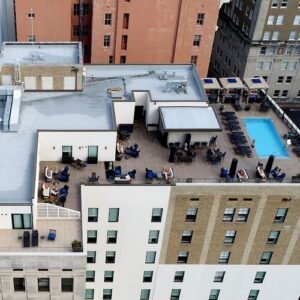
However, there are also some challenges to TPO roofing membranes. One of the main concerns for businesses is the potential for seam failure, which can lead to leaks. TPO roofs can also be prone to shrinkage over time, which can cause the seams to pull apart and lead to leaks. Additionally, TPO roofs can be more expensive than other roofing options, which can be a challenge for businesses on a tight budget.
In general, TPO roofing membranes are a practical alternative for businesses looking for an energy-efficient and durable roofing solution. It's important to consider both the advantages and challenges and consult with a professional roofing company to determine if TPO roofing is the best option for your business.
Spray-On Roofing, a.k.a. spray polyurethane foam roofing (SPF), is a system for roofing commercial buildings. One of the main benefits is that it provides a seamless, waterproof barrier that can conform to any roof shape, making it ideal for roofs with unique or complicated designs. SPF is also a great insulator, providing energy efficiency and reducing heating and cooling costs for buildings. Spray-On Roofing is durable and long-lasting as well, with a lifespan of up to 50 years or more.
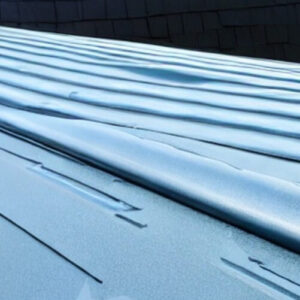
Still, there are also some challenges to Spray-On Roofing. A concern is that it can be expensive, challenging organizations on a tight budget. Additionally, installation can be complex and require specialized equipment and trained professionals. Maintenance can also be a challenge, as the foam can be easily damaged by sharp objects or UV rays, and it requires regular inspection and repair.
Overall, however, Spray-On Roofing is a great option for businesses looking for a flexible, energy-efficient roofing solution. It's important to consider both the advantages and challenges and consult with a professional roofing company to determine if Spray-On Roofing is the best option for your building.
Built-Up Roofing (BUR) systems are an age-old method of roofing that involves layering bitumen, felt, and a top layer of gravel or mineral granules. These systems are popular for their durability, weather resistance, and affordability.
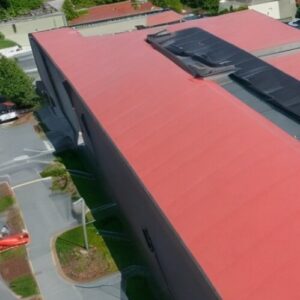
One of the biggest advantages of BUR systems is their longevity, which can last up to 30 years with proper maintenance. They are also designed to withstand extreme weather conditions like heavy rain, snow, and high winds, making them an ideal choice for commercial buildings. Additionally, BUR systems are fire-resistant, which can help prevent the spread of fires.
Consider, too, that they also have some drawbacks. BUR systems are heavy and require a sturdy building structure to support them. They also require adequate maintenance to prevent leaks and ensure their longevity. Installation of BUR systems is complicated and requires skilled professionals.
All things considered, BUR systems are a good choice for commercial buildings due to their durability and affordability, even if their weight and maintenance requirements should be considered before installation.
Other increasingly used commercial roofing systems are solar panel roofing and green roofs. These roofing types are built on top of existing infrastructure, often to save space and make the best of natural sources of free energy.
As commercial roofing experts with 19+ years of experience across the Gulf Coast, Roofing Solutions can help you decide on the best types of commercial roofs for your building by considering factors such as budget, durability, and aesthetics.
We offer a wide range of roofing options including traditional shingles, commercial metal roofing, and various flat roofing solutions. Our team of skilled professionals uses only the highest quality materials and installation techniques to ensure that our clients receive the best roofing solutions. We stand out in the market by providing exceptional customer service, competitive pricing, and a commitment to excellence and renown in the construction industry.
All in all, choosing the best commercial roofing types for your business comes down to considering factors such as budget, durability, and aesthetics. Whether you decide for traditional asphalt shingles, modern metal roofs, or flat roofing systems, it's important to choose a reliable roofing contractor that can provide durable materials and professional installation.
As a commercial roofing company, at Roofing Solutions we offer a wide range of roofing materials and our team of experts is always available to help you choose the best one for your needs. Contact us today to learn more and get a free estimate for your roofing project.